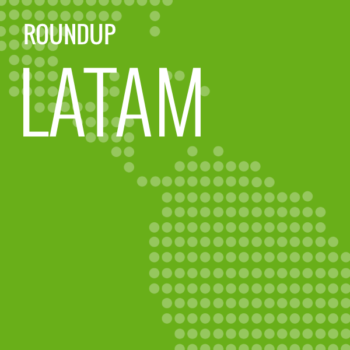Adsmovil & Sizmek Close Deal Against Fraud; Tradelab Push Fraud Conversation in Latam
by on 13th Mar 2017 in News

In this week's Latin American RoundUp: combating fraud is why Adsmovil and Sizmek have joined efforts to integrate their tools, focusing on Latin America and hispanic mobile traffic; four months after Tradelab's debut in Brazil, Essio Fiordi, managing director, speaks up about the market and its improvement when combating fraudulent traffic; Facebook & The Economist report highlights the challenges of digital inclusion of the biggest Latin American digital advertising marketing: Brazil.
Adsmovil and Sizmek join efforts agains fraud
The mobile ad company Adsmovil and Sizmek announced a deal which puts Sizmek’s ad verification technologies into Adsmovil’s DSP. The companies have also used the opportunity to raise concerns about fraud discussions in Latin America, following up conversations that have been happening in most mature markets such as the United States and United Kingdom.
“We are the first in the Latin American programmatic industry who have taken the fraud problem seriously”, said Alberto Pardo, CEO and co-founder, Adsmovil. The company works mainly in Latin American markets and the hispanic market in the US.
According to a recent Sizmek study, almost 10% of mobile app traffic comes from non-certified applications. Yet, they estimate that 8% of the traffic is malicious, after analysing the data combining their own technology and AVG’s solutions.
Tradelab: Advertisers are becoming mature in LATAM to talk about fraud
Speaking to ExchangeWire Brazil, Essio Fiordi, managing director, Tradelab, who has been in the country since late last year, speaks up about the moment of programmatic industry in Brazil, with a favourable scenario to discuss fraud and strategies to combat it. The ad verification company has been pushing the conversation among the local players.
“Advertisers are becoming mature, they are conscious that their choice of efficient tools is part of their capacity to protect and control their brand, improving the efficiency of their investments”, he said.
A recent report made by Adloox using Tradelab data of 100 media campaigns revealed that, on average, players tend to be 10% more susceptible to invalid traffic in programmatic media when they are not integrated into verification tools. This number drops to 0.8% when they invest in this kind of verification technology.
According to Fiordi, the company has improved campaign efficiency with an average 60% decrease in the CPM and 44% decrease in the CPC. He says this is due to verified inventory, trusted as non-fraud inventory since the pre-bid stage, allowing Tradelab to bid only on 'pure' publishers with great viewability.
Yet, Fiordi highlights what the industry already knows: zero risk does not exist. Having fraud-free rates below 1% is something “positive”, in the executive's words.
Digital inclusion is still a challenge in Brazil
A recent report, made by Facebook and The Economist, puts Brazil in the 18th position among 75 countries on a digital inclusion ranking. Even though the country is the first Latin American nation in the list, it’s still below other developing markets such as Poland, Romania, Russia, and Taiwan.
Brazil is also among the top 10 countries in the world with the highest offline population: around 70 million Brazilians do not have access to the internet. Worldwide, they estimate that there are four billion people in the same condition, and the rate varies according to the country. In Europe, 20% of the population is offline, compared to 75% in Africa. High levels of economic and social development facilitate access to the internet.
The best criteria in Brazil is the cost, with 92.3 points out of 100, when analysing the price of services and devices related to internet access.
On the top of the ranking, there are Singapore, Sweden, United States, United Kingdom, Japan, and South Korea.








Follow ExchangeWire